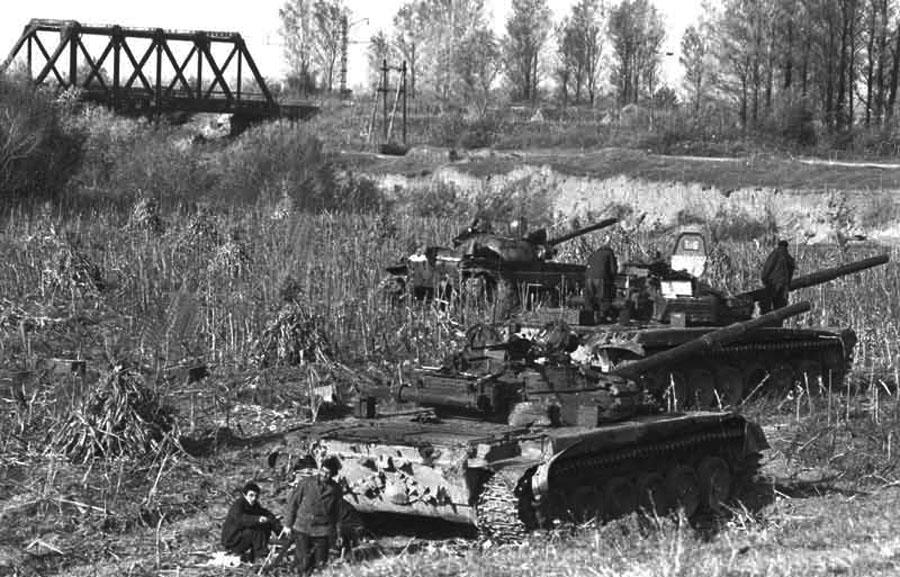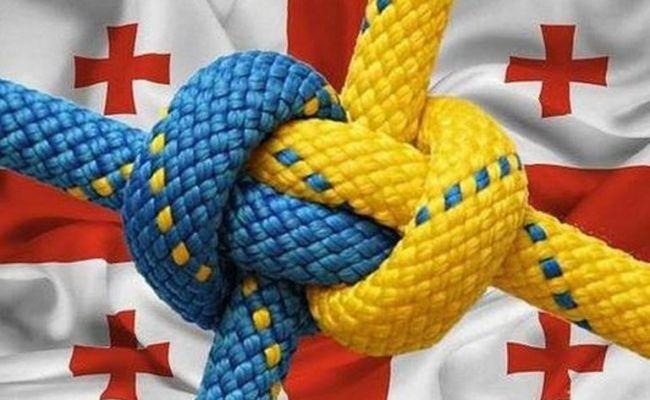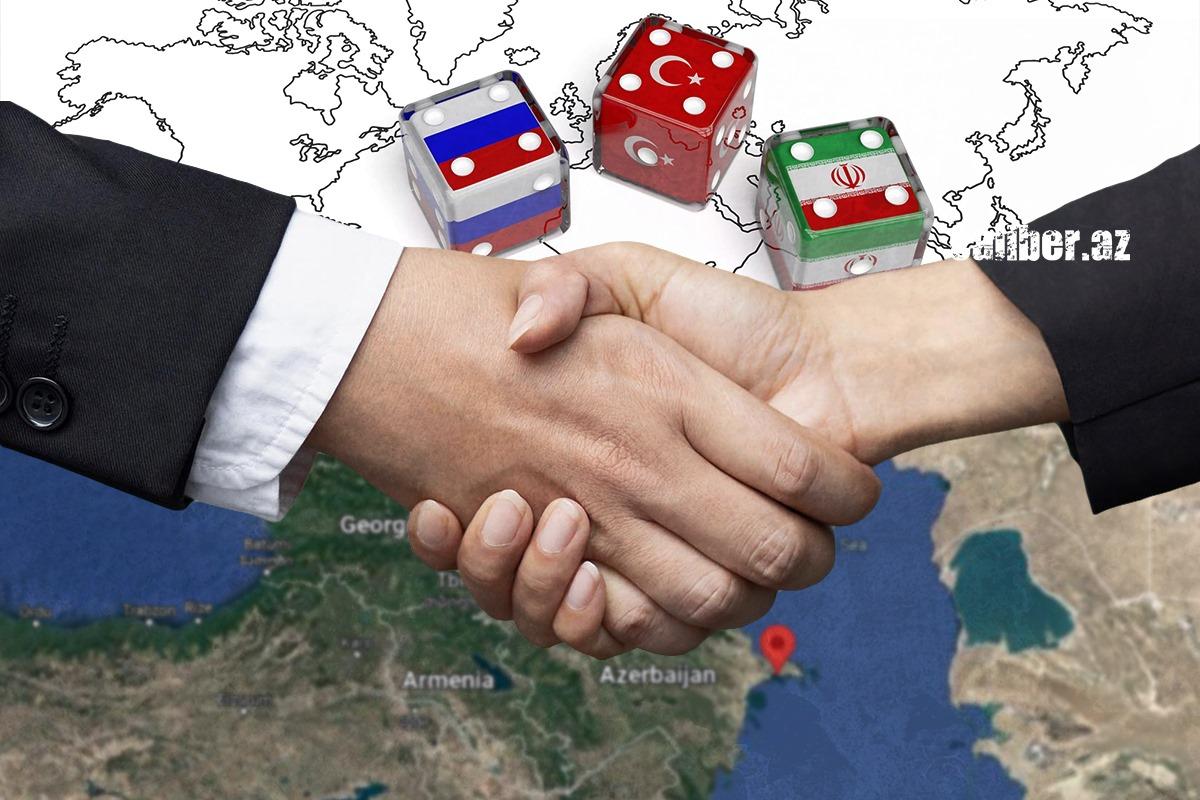Armenians helped to expel Georgians from Abkhazia Caliber.Az from Tbilisi
Caliber.Az presents an interview with the Georgian political scientist Temur Chilachava, Professor of Sukhumi State University, President of Tskhum-Abkhazian Academy of Sciences.
- First of all, we would like to know your opinion regarding measures currently undertaken by the Georgian government to restore the territorial integrity of the country.
- In 1992-1993 Abkhazia was occupied by Russia since then almost 30 years have passed, but no progress has been made to restore the territorial integrity of Georgia under the Shevardnadze, Saakashvili and Ivanishvili governments. It took Russia about a century to plot the events in Abkhazia. When a military coup d'etat took place in Georgia in late December 1991 and President Zviad Gamsakhurdia was overthrown, it became a fertile ground for Moscow, which began to pump up the separatist sentiment, resulting in the forced eviction of nearly 300,000 Georgians from Abkhazia in 1993. Prior to that Abkhazia had 46% Georgians, 18% Abkhazians, 14.6% Armenians and 14.3% Russians, 7.1% - other nationalities. Unfortunately, Armenians helped Abkhazians and Russians both in military actions and in the forced eviction of Georgians. The "Baghramyan" battalion was created and took an active part in hostilities against the Georgian government forces and the local Georgian national militia. The reason for the beginning of military actions in Abkhazia was a fatal and anti-state decision of Eduard Shevardnadze, as well as members of the State Council Tengiz Kitovani, Jaba Ioseliani and Tengiz Sigua.
Years later Mikhail Saakashvili came to power, using the rhetoric of the military return of Georgians to Abkhazia. There were no positive events during his presidency. On the contrary, in 2008, Russia without a single shot being fired occupied the remaining part of Abkhazia, the so-called Kodori Gorge. And after Bidzina Ivanishvili, the Chairman of the Georgian Dream Party came to power, the process of returning the occupied territories was completely frozen. He said that he only supports the peaceful resolution of the conflict, but there has been no progress in that direction. Concerning the situation in the Tskhinvali region, it is even worse. The overwhelming majority of Ossetians living in this region want it to be annexed to Russia. The situation is different in Abkhazia, as Abkhazians want to have an independent state, but with Russia's constant financial resources. On the one hand, it is good that they do not want to be part of Russia, at the same time they want to constantly live at someone else's expense, which is impossible with Russia, but on the other hand, the process is frozen and there are no any developments.
In fact, today Georgia is occupied by three forces - this external territorial occupation by Russia, as well as two internal political "occupations" - by the "Georgian Dream" and the "United National Movement". Therefore, 60% of the population of Georgia does not want either the "Georgian Dream" or the United National Movement. These two forces have been destroying the political process in Georgia through their coordinated actions for years. In short, no government in Georgia has taken and is not taking any active state thoughtful steps to reintegrate Abkhazia and the Tskhinvali region.

- The war with the Ossetians and Abkhazians was very bloody, we all remember the brutal events in Sukhumi. Will the Georgians be able to forgive the Abkhazians?
- It was a war between Russia and Georgia with the local Abkhazian and Armenian population, as well as representatives of the North Caucasus, mostly Chechens and Kabardins, on the Russian side.
As for the Tskhinvali region, Russian regular troops entered and occupied it in 2008. In 1992-1993 Georgia did not get any help from the West regarding Abkhazia and we stood face to face with the Russian regular army. The only people who helped us were volunteers from Ukraine. They claimed that their turn would come too, and Russia would attack them one day. When we were forcibly evicted, we were helped by Ukrainian warships and helicopters that came under fire from Russian warships. Hence, there were no Georgian-Abkhazian or Georgian-Ossetian wars. There were Russian-Georgian wars on Georgian territory.
- What ways of reconciliation with the Abkhaz and Ossetians do you see?
- For Abkhazians, no one will be closer than Georgians and for Georgians, no one will be closer than Abkhazians. But Abkhazians have been prepared by Russia for almost 100 years, laying time bombs. In Tsarist times Russia displaced a significant number of Abkhazians from Abkhazia because it considered them unreliable. The Georgians recorded the Abkhaz as Christians so that they would not be taken to Turkey. There were repressions during Soviet times as well. Later everything was blamed on the Georgians Joseph Stalin and Lavrentiy Beria. If Russia does not interfere, which is possible only after its weakening, we will not have problems with Abkhazians and Ossetians.

- How do you assess the cooling of relations between Tbilisi and Kyiv?
- In my opinion, Ukrainian President Zelenskyy made a mistake by recalling the ambassador from Tbilisi. He had no reason for that. The vast majority of the Georgian population supports Ukraine. Moreover, Georgia provides significant humanitarian aid to Ukraine. No matter what the Georgian government does, our people will always support the Ukrainians. The actions, aspirations and struggles of the Ukrainian people for independence are very close to us, we have always been friends, under Yushchenko, Poroshenko and after them, we will cooperate too. Personally, I am not a supporter of the Georgian Dream. The UNM, being in power, has been oppressing me. I belong to the 60% of the population who don't want either of these parties. Both parties are involved in corruption. Some of Saakashvili's closest associates, unfortunately, ended up in Ukrainian government circles.
The leader of the Georgian Dream is rushing between Moscow and Europe, because he understands the aspirations of an overwhelming number of Georgians towards the West.
- What does Georgian society think about joining NATO?
- As you know, the consensus in the alliance decides everything. When a poll was conducted 10 years ago, 70% of the Georgian population was in favour of joining NATO. But Germany and France blocked our membership at the Bucharest summit. Now, if we conduct a poll, many more Georgians would vote for NATO membership. But for Georgia, as well as for Azerbaijan, the most important issue is the restoration of territorial integrity and the peaceful return of refugees. We will choose the way that will help us to get back our lands. But in general, of course, our vector is clear - the West.
- And what about the EU?
- It is not enough to be politically oriented to get into the EU, as economic factors, transparency of courts, freedom of speech and so on are taken into account there. Georgia has a lot of disadvantages in this regard. The courts are specially controlled, they very often made pro-government decisions under Saakashvili and are now making them.
- How do you feel about Azerbaijan's resolution of the Karabakh conflict?
- I have always supported the territorial integrity of Azerbaijan, which simply had to return its territories. Azerbaijan was moving purposefully towards its goal until it reached it. And it was not so much the strong economy that played a role here, but rather the right priorities. In addition, you have a strong ally - Turkey. What Azerbaijan has achieved during the 44-day war is the fruit of 30 years of diligent work in all fronts, which includes the strengthening of the army, as well as the support of Turkey, the regional leader.

- President Ilham Aliyev recently proposed a format for regional cooperation between Georgia, Azerbaijan and Armenia. How do you see the prospects for this format and how will it differ from the "3+3" format?
- Indeed, Aliyev proposed Georgia, Azerbaijan and Armenia to unite, and Zviad Gamsakhurdia also voiced this idea in his time. But Armenia refused at that time, so the union failed. In 2005, the Nobel Prize in Economics was awarded to mathematician Robert Aumann and economist Thomas Schelling for "enriching our understanding of conflict and cooperation through analysis using game theory." The basic principle that guided the scholars was: "A long-term relationship between competing actors can produce cooperation between them for which there is no basis in the case of a single contact. In other words, a long-term relationship between adversaries creates common interests and prerequisites for cooperation." The former Prime Minister of the Republic of Singapore and one of the creators of Singapore's economic miracle, Lee Kuan Yew, noted: "If you want economic growth, it is better not to fight with your neighbours, but to trade with them."
The idea Ilham Aliyev voiced on April 29 in Baku at an international conference is great. The main thing is for the Armenian people to realize it. As I think, Nikol Pashinyan has already understood its importance. This idea is also important for Armenia, including in terms of their security and development, weakening their dependence on Russia. Yerevan should really assess the way offered by Baku, which will certainly be supported by both Tbilisi and Ankara. I hope there will not be a change of government in Armenia because otherwise this idea will be buried. As for the "3+3" format, it is not so easy for Georgia because Russia has occupied more than 20% of our territory. Armenia in this format will be supported by Russia and possibly Iran, Azerbaijan will be supported by Turkey, and who will support us?
Therefore, a "3+1 (U.S.)+1 (Turkey)+1 (EU)" alliance would be acceptable to us. We do not imagine an alliance with Russia. However, Turkey as a regional leader is acceptable for Georgia; Tbilisi has much better relations with Ankara than with Iran. The most important thing is that Yerevan agreed to cooperate; after all, Armenia needs negotiation platforms for its economic development. We may not become brothers, but we can become excellent neighbours.








